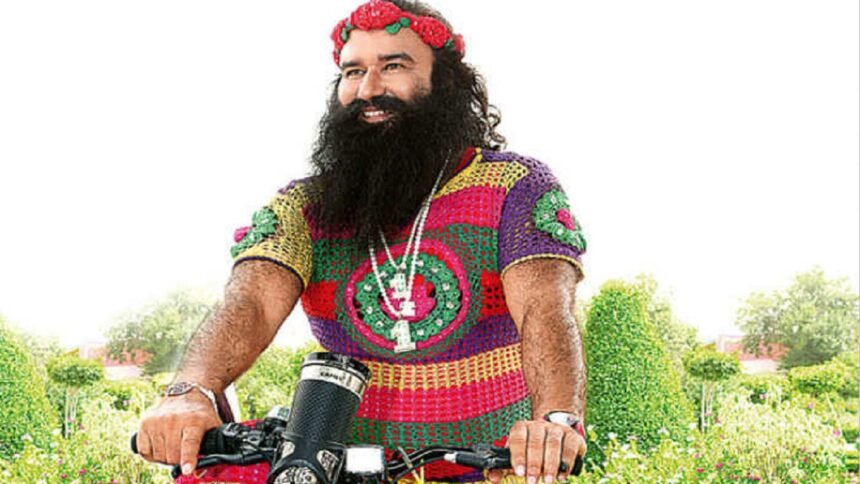After serving a considerable portion of his sentence, Gurmeet Ram Rahim Singh, the controversial chief of Dera Sacha Sauda and a convicted rapist, walked out of Sunaria jail in Haryana’s Rohtak district on Thursday, following the grant of a 30-day parole. The decision to allow parole sparked mixed reactions from the public, with some expressing concern over his release while others citing legal procedures.
Amid tight security measures, Singh was released from prison at 5 pm, as confirmed by one of his counsels. Advocates and supporters of Dera Sacha Sauda eagerly awaited his release, hailing it as a moment of triumph for the self-proclaimed godman. Singh, who had previously enjoyed a massive following, faced severe criticism and legal action after being convicted of rape in 2017.
The 30-day parole provides Singh with the opportunity to visit the Dera Sacha Sauda ashram at Barnawa in Uttar Pradesh’s Baghpat. His counsel, Jitender Khurana, confirmed this plan, adding that the chief would use this time to reconnect with his followers and assess the state of affairs within the organization.
Singh’s release on parole raised concerns among activists and victims’ rights groups, who argued that such a privilege should not be granted to someone convicted of heinous crimes. The case has been closely monitored by the media and the public, with many questioning the fairness of the parole decision.
In 2017, Gurmeet Ram Rahim Singh was convicted of raping two female followers in 2002, and his sentencing sparked widespread riots that resulted in multiple fatalities and property damage. The verdict led to a deepening crisis for Dera Sacha Sauda, as allegations of abuse and criminal activities within the organization came to light.
During his time in prison, Singh had sought parole on several occasions, citing health reasons and the need to manage the organization’s affairs. Each previous request was met with opposition from the victims’ families and the broader community, who saw it as an attempt to evade justice.
The parole decision was made by the appropriate authorities after considering various factors, including Singh’s conduct during incarceration and his health condition. However, some critics believe that influential figures like Singh might have used their connections to influence the decision-making process.
The case has not only highlighted the flaws in the justice system but has also ignited debates about the treatment of high-profile convicts in India. Many argue that individuals convicted of serious offenses should not receive special treatment, regardless of their social or political standing.
As Gurmeet Ram Rahim Singh embarks on his 30-day parole, security personnel have been deployed to prevent any untoward incidents. Authorities aim to ensure that the chief’s presence at the Dera Sacha Sauda ashram does not lead to further unrest or violence.
The parole also offers an opportunity for the public and media to assess how Singh’s release impacts the followers of Dera Sacha Sauda and the organization itself. It remains to be seen whether his return will reignite fervent support or if it will exacerbate existing controversies surrounding the group.
Meanwhile, victims’ rights advocates continue to demand a fair and transparent justice system, where individuals convicted of such heinous crimes face the full extent of the law. The parole decision has reignited discussions about the need for comprehensive reforms to prevent influential individuals from manipulating the legal process to their advantage.
As Gurmeet Ram Rahim Singh begins his parole, the nation watches closely, hoping that justice prevails and that the rights and dignity of victims are upheld. The outcome of this case will have far-reaching implications for future parole decisions involving high-profile convicts in India.




